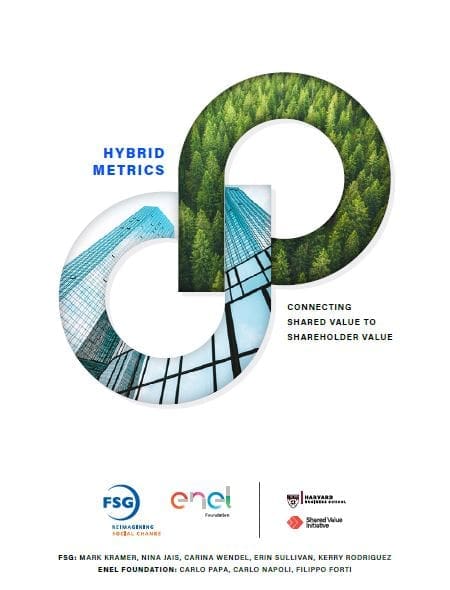Today, investors are able to identify “good” companies and “profitable” companies but not companies doing the most good most profitably which is a missed opportunity for business, investors, and society.
In Hybrid Metrics: Connecting Shared Value to Shareholder Value, we introduce a new approach that combines companies’ social and environmental impact with standard measures of financial performance, making the connection between the two explicit. Hybrid metrics are still in the nascent stages, but the benefits and potential they hold are promising. We hope this report inspires companies, analysts, and investors to experiment with this concept and bring us closer to demonstrating the causal link between social/ environmental and financial performance — underscoring the importance of creating shared value.
Top Takeaways
- Despite many recent advances in the adoption and sophistication of social and environmental impact reporting, most of the voluminous social and environmental reporting systems available are highly inconsistent, lack external verification, and were never designed to convey material financial implications to investors.
- The integration of social/environmental and financial reporting could go further by developing hybrid metrics that directly link social/environmental and financial performance. A virtue of this approach is that it uses existing financial metrics that enable traditional tools of security analysis to be applied while also factoring in social and environmental factors.
- Hybrid metrics require a mindset shift amongst corporate leaders and investors from thinking of social and environmental performance and financial performance as two sets of independent variables that address two separate audiences, and to recognize instead that they are highly interdependent. Social and environmental impacts have financial consequences and financial decisions create social and environmental impact.

